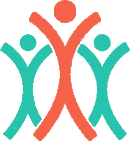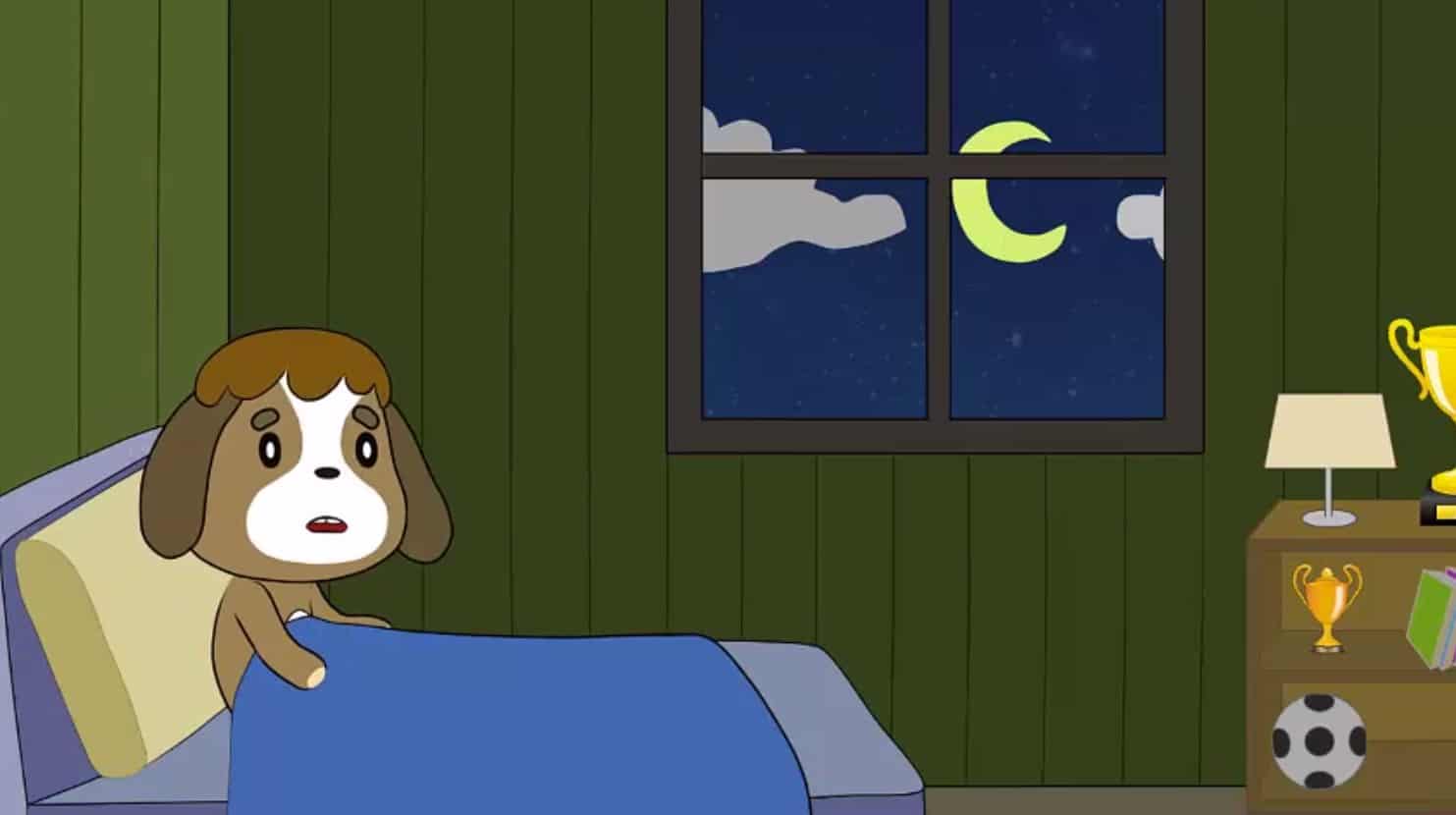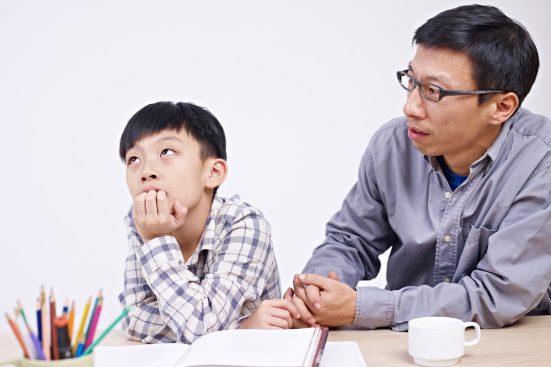As parents, it is important for us to help our children/teens get enough sleep. This means we need to teach young people about sleep; why sleep is important and strategies to use to get enough. But other than “you need to get enough sleep” – what exactly should we be telling them? What do they need to know?
Here are the 12 most important sleep concepts I think children and teens should know about, and the words you can use to teach them about these concepts.
1. “Some people need more sleep, and some need less. The best way to know if you haven’t got enough sleep is whether you are sleepy the next day.”
Young people (and sometimes adults too) can get fixated on how many “numbers” of hours of sleep they need. Unfortunately it’s not this simple. There have been more than one hundred different sets of guidelines published by many different health bodies over the last hundred years. Also, some young people need more sleep than average, and some need less.
The best guide for all of us (at any age) to know if we are getting enough sleep is daytime sleepiness. If we are sleepy and tired during the day, then we probably need more sleep. Helping children and teens notice their daytime sleepiness is important, as often chronically sleep deprived young people are so accustomed to the feeling of being sleepy that they don’t realise this is not normal.
2. “It’s normal to wake up during the night – we all wake up (very briefly) every 90 minutes.”
Some children and teens I work with are very worried about waking up at night, and think it’s abnormal to do so. For these young people, it can be useful to tell them we have “sleep cycles” of about 90 minutes, that we all wake (often so briefly that we don’t remember it) every 90 minutes and this in itself is not a problem
3. “When we don’t get enough sleep, we will have more problems remembering information, learning new ideas, feeling relaxed and happy, staying fit, recovering from illnesses, playing sport, moving and reacting quickly”
Some (not all) young people need more motivation to address their sleep habits. For these children and teens, it’s important for us to explain the sufficient range of problems associated with sleep deprivation.
Sometimes as parents, we just touch on one problem associated with sleep deprivation. For example we might just say “if you don’t get enough sleep you will be grumpy tomorrow”. Unfortunately, given that changing sleep habits can be hard and involve a lot of sacrifice, it’s important for them to know exactly why working on sleep will be beneficial for them.
I find that finding out what each young person cares most about – and then explaining the effect of sleep deprivation in that particular area – can be useful. For example, some young people are highly motivated to do well in sport – and explaining research on strength and speech will help this young person. Some young people are highly motivated to feel less anxious and sad – helping these young people understand the effects of sleep deprivation on mood is more useful.
Of course this is only an important topic of conversation if in fact the young person is NOT motivated to look at sleep habits. Some young people are anxious about their sleep and already motivated to get more sleep, in which case detailed explanations like this only make them feel more anxious and should be avoided.
4. “One good way to get to sleep more easily at night is to regularly get up earlier in the morning – and then move around, get into light and eat first thing the next day.”
If children and teens don’t have any problems getting to sleep at night, then it can be fine to for them to “sleep in” in the morning. If they do have problems getting to sleep however, then sleeping late in the morning – even if it’s just on weekends – will often mean they have trouble getting to sleep again the next night.
It’s important for us as parents to teach young people that sleeping in excessively late on the weekends can be negatively affecting their sleep.
It’s also important for us to tell young people, once they get up, that they need to be “resetting” their body clock so their body knows it is day time straight away. This means turning on some bright lights (or opening blinds to let sunlight in), having breakfast and even doing some light exercise if this works with their routine. Resetting their body clock early in the morning like this, helps them get to sleep earlier at night.
5 “Another good way of getting to sleep more easily at night is to do more exercise during the day”.
The more minutes of exercise children and teens do during the day the quicker they fall asleep at night. The only exception to this is team sports played very late at night – unfortunately these delay sleep. Otherwise, encouraging our children to do more exercise, sport and incidental movement during the day has a direct positive effect on sleep. Telling them this can be useful so they can look out for exercise opportunities during the day too.
6. “Be really careful about taking naps during the day. Short naps can be great if you don’t have problems sleeping. If you do have problems sleeping then even a short one can make it harder to get to sleep at night.”
Teens in particular who sleep during frees or after school, or during the afternoon on the weekend will often have more trouble getting to sleep at night than those who don’t do this. They then don’t have enough “sleep debt” built up by night time to get to sleep – stay awake until very late – and then have trouble getting up in the morning. And the cycle repeats itself. It’s important we let teens know about the potential dangers of naps.
7. “You need to turn off your devices at least 30 – 60 minutes before bed. Looking at blue light from phones or laptops “turns down” a “sleep hormone” called melatonin and makes us feel more alert.”
There are now several years of studies which show an association between late night electronic device use and sleep quality. Some preliminary studies have shown that even a “quick” look at our devices in the middle of the night can interfere with not only getting back to sleep, but getting enough “slow wave” (deep) sleep.
I find that explaining these experiments to children and teens, and telling them about sleep hormones increases their understanding about family rules about “switch off” times. Of course most young people are not motivated by themselves to turn off these highly pleasurable and fun social media, gaming devices – but knowing the research behind it can reduce the arguments when we are parents put the rules in place.
8. “When you go to bed, make sure your room is really dark, cool and quiet. ”
Even small amounts of light and heat can reduce sleep hormones. We need to help our children cover up clock lights, close the door, take off a blanket and even use ear plugs if needed. It’s important for young people to know this so they can adjust their own body temperature as needed.
9. “When you go to bed. Close your eyes, relax your muscles and stay as still as you can. Test yourself to stay super still for a minute or two and then wriggle around if you need to and then try to stay super still again.”
It’s amazing how many children don’t know this basic fact: you can’t get to sleep when you are moving around. Of course, staying really still in bed is a struggle for some young people for a range of reasons. Helping them learn to do this is a slow process – but it’s important to be working on it.
10. One way of helping yourself get to sleep is to say calm thoughts to yourself about getting to sleep or make calm pictures or images to put in your head.
Kids and teens need coaching about specific “getting to sleep strategies” like using calm thoughts and imagery. It sounds simple, but some young people don’t know what to put in their head when they are trying to get to sleep. Teaching them to say calm thoughts to themselves, use their imagination to visualise calm scenery or “mini movies”, or go over a book/TV show can be really helpful. Some young people also feel really anxious about NOT being able to get to sleep and need to create some calm thoughts about sleep itself like “I’m ok”; “I’m getting better at getting to sleep all the time”, “My muscles are getting more and more relaxed”. Share with them what you do in your head when you can’t sleep.
11. “If you can’t get to sleep within about 15 mins of having your eyes closed and being really still, get up and do something boring for a few minutes, and then try again.”
Staying in bed for hours trying to get to sleep is agonising, miserable and counter-productive . It can be convenient and comforting for us as parents to know our children and teens are in bed, however if they are lying awake for long periods of time this means they are setting up an unconscious association between being awake and in bed, which will cause more problems. If children and teens have genuinely been lying still, with eyes closed (not on their phone/devices), and with a relaxed body, late enough at night – and are not asleep, it’s better for them in the long run if they get up, do something boring (do some stretches, walk to the bathroom and back, look at a magazine or book (not electronic device) and then try again 15 minutes later. We want to teach them to do this independently however rather than need our input (ie have a written “can’t get to sleep plan” in their bedroom which they need to follow before asking for parent help – but how successfully they can do this will depend on their age.
12. “Have trouble with sleep? You’re not alone. It’s not easy – and it takes practice”
Depending on the study you look at, approximately 50% of kids and teens have regular problems getting enough sleep. It’s important we let young people know that there is nothing (necessarily) seriously or unusually wrong with them, that difficult with sleep is very common. We need to tell young people that learning to get enough sleep is like learning to manage our physical fitness, or learning to read – or any other tricky area of life.
It takes some time, effort and sacrifice. We should teach our young people to be patient with themselves as they learn getting these sleep skills.



